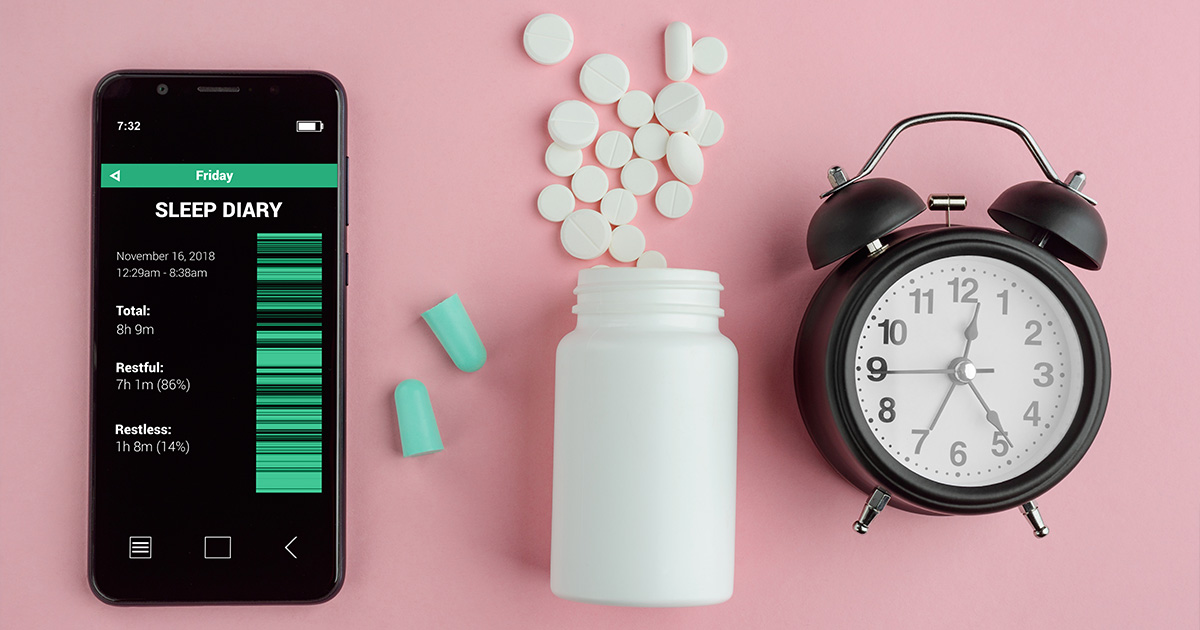The Woolcock Institute of Medical Research

Let's talk apps and pills
Sleep has become a popular topic of discussion on breakfast radio with listeners sharing what works for them when dealing with insomnia, snoring and frequent waking during the night.
Recently, ABC Radio’s Breakfast Sydney host Craig Reucassel asked Professor Delwyn Bartlett whether products marketed by vitamin manufacturers, drug companies and social media influences can solve our sleep problems.
“Are these supplements and medications for getting to sleep or staying asleep? What are they effective for?”, he said.
Professor Bartlett, who has been studying and treating people with insomnia for more than 30 years urges those having problems with their sleep to put things in perspective when it comes to these treatments.
“If you've got a headache, you take a pain relief, but you don't do it all the time. With sleep, one of the things that's really important to remember is that if you're taking something all the time, you lose confidence in your ability to sleep on your own. That, then becomes a self-perpetuating pattern of behaviour.”
WATCHING YOUR SLEEP
She believes the increasing awareness of the importance of sleep and the emphasis we now put on simplified measures might also be working against a good night’s sleep for many. Wearable devices and even phones now provide information on how many hours of sleep we get each night, how often we wake and move about in bed to measure sleep quality. But those measures are based on broad algorithms unlike the more complex data that is collected in sleep studies and research using sophisticated equipment like high density EEG (HDEEG).
“When we look at what we do in terms of sleep studies and then particularly research where we look at HDEEG which can look at what's happening across the brain, we are getting a much clearer picture of a person’s sleep. I don't know enough about particular apps to make a statement but it’s unlikely they could assess whether you’re in deep sleep or not, for example.”
Want to stay up to date with our research on sleep and respiratory conditions?
Sign up to our monthly newsletter
LOOKING TO THE LONG-TERM
When asked about sleep supplements, in particular melatonin, Professor Bartlett explained: “Melatonin is the hormone that’s released in response to darkness, but its primary role is actually to trigger a drop in body temperature. If you happen to feel sleepy as well, that's a secondary effect. Fast-release melatonin can be taken by people who have difficulties with delayed sleep. Slow-release melatonin can be helpful for older people who are having trouble returning to sleep during the night but it’s important to remember that everybody wakes at least two to three times a night. As we age it can be five to nine times a night, but you don’t remember all of those.”
And it won’t work for everybody, every night.
Professor Bartlett warns against everyday reliance on any medication to sleep.
“When there's periods of grief or stress and you just can't switch your brain off, sleeping tablets can be very useful in the short term, but we really don't have long-term research showing what happens to people who take sleeping tablets. We do know that, as we age, sleeping tablets are associated with an increase in falls, and that's of considerable concern.”
A SOOTHING OPTION?
What about vitamins, herbal sleep tablets and teas?
“There is some evidence that they are effective, but it’s quite patchy,” said Professor Bartlett. “We have problems as there are not enough randomised controlled trials of over-the-counter medicines so we don't have longitudinal evidence to support their use.”
“If it's a soothing thing for you to do before you go to bed, though, I don't really see any problem with them. I'm a big herbal tea drinker at night, just because it slows things down for me.”










